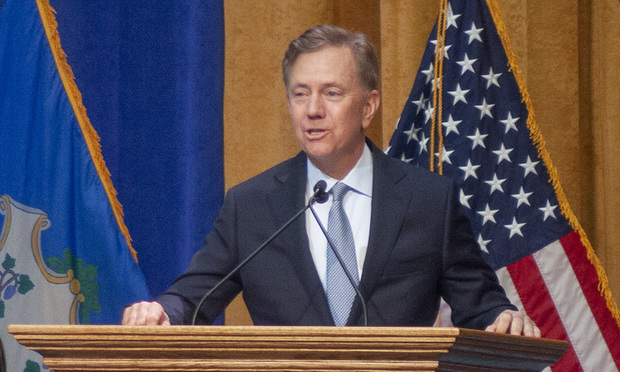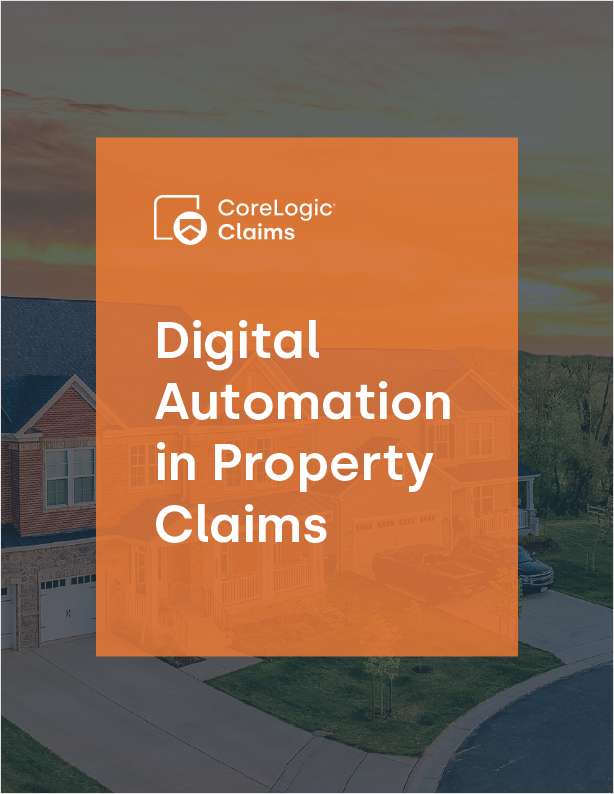Goodbye Law Firm Retreats: New Executive Order Allows For Remote Annual Meetings During COVID-19 Crisis
The order barring in-person annual meetings does not affect law firms that are partnerships or limited liability companies. It does affect law firms that are formed as professional corporations.
May 21, 2020 at 05:47 PM
4 minute read
 Gov. Ned Lamont. Photo: Michael Marciano/ALM
Gov. Ned Lamont. Photo: Michael Marciano/ALM
Some Connecticut law firms and most businesses will be saying—for the short term, anyway—so long to those long weekend retreats and annual meetings and hello to computers and smartphones. The reason: Gov. Ned Lamont has allowed for shareholders of stock and nonstock corporations to hold their annual meetings using technology that prevents in-person gatherings.
The order barring in-person annual meetings does not affect law firms that are partnerships or limited liability companies. It does affect law firms that are formed as professional corporations.
Lamont signed the emergency executive orders for stock corporations March 21 and for nonstock corporations on May 13.
Firms' role
Many state law firms had a part in helping the governor's office draft the measures.
Attorneys from Day Pitney, a firm which ranks 164th on the Am Law 200 with about 254 lawyers in 13 offices, worked with the governor's office on behalf of anxious clients.
Lane Watson, a partner in Day Pitney's corporate department and leader of the merger and acquisition group, said there are many upsides to the emergency executive orders and very few downsides.
"Our involvement with both orders came about because we had clients that were concerned about having to hold in-person meetings with COVID-19 still in the forefront," Watson said Thursday. "For both stock and nonstock corporations, we streamlined the language that allows for the corporations to having their shareholders or members have the meeting entirely remotely."
Unlike some states, such as Delaware, Connecticut's General Statutes have no bylaws addressing holding annual meetings remotely.
That's a mistake, said Matthew Gaul, chairman of the nonstock subcommittee of the business law section of the Connecticut Bar Association.
"It's a useful tool, and frankly, our statute is behind the times," said Gaul, a partner with Carmody Torrance Sandak & Hennessey in New Haven. "We did not have the mechanics set up in our state to have remote-only meetings or remote participation. Other states are ahead of us."
With regard to the most recent executive order for nonstock corporations, which include many charities, Gaul said, "They would have had to postpone their meetings if there was no executive order. A large percentage of charities and many nonstocks have their annual meetings in May. So this enables them to stick to their regular schedule of business."
Without the meetings being held, Gaul said, "It could have created difficulties for people coming off boards or joining boards. There are also, often, financial considerations."
The new orders, Watson said, leave it up to the business on how to conduct the meeting remotely. One rule in the orders states that it must be verified that the person communicating remotely is really a shareholder.
"You need to verify that the vote is valid," Watson said.
The executive orders allows annual meetings to be held remotely during the current crisis.
Watson said Day Pitney lawyers plan to work with bar association groups and the state General Assembly to enact permanent amendments to the statutes to allow for remote shareholders and member meetings for when the current health crisis is over.
Related stories:
Florida Bar Convention Going Virtual, Skipping Orlando Meeting
Amidst COVID-19 Uncertainty, Texas Bar Cancels Largest CLE Gathering of the Year
This content has been archived. It is available through our partners, LexisNexis® and Bloomberg Law.
To view this content, please continue to their sites.
Not a Lexis Subscriber?
Subscribe Now
Not a Bloomberg Law Subscriber?
Subscribe Now
NOT FOR REPRINT
© 2025 ALM Global, LLC, All Rights Reserved. Request academic re-use from www.copyright.com. All other uses, submit a request to [email protected]. For more information visit Asset & Logo Licensing.
You Might Like
View All
Trump's DOJ Delays Releasing Jan. 6 FBI Agents List Under Consent Order
3 minute read
Judge Grills DOJ on Trump’s Birthright Citizenship Executive Order

Justice 'Weaponization Working Group' Will Examine Officials Who Investigated Trump, US AG Bondi Says

Trending Stories
- 1Will Big Law's Bet on the Middle East Pay Off?
- 2Jury Awards $3M in Shooting at Nightclub
- 3How Clean Is the Clean Slate Act?
- 4Florida Bar Sues Miami Attorney for Frivolous Lawsuits
- 5Donald Trump Serves Only De Facto and Not De Jure: A Status That Voids His Acts Usurping the Power of Congress or the Courts
Who Got The Work
J. Brugh Lower of Gibbons has entered an appearance for industrial equipment supplier Devco Corporation in a pending trademark infringement lawsuit. The suit, accusing the defendant of selling knock-off Graco products, was filed Dec. 18 in New Jersey District Court by Rivkin Radler on behalf of Graco Inc. and Graco Minnesota. The case, assigned to U.S. District Judge Zahid N. Quraishi, is 3:24-cv-11294, Graco Inc. et al v. Devco Corporation.
Who Got The Work
Rebecca Maller-Stein and Kent A. Yalowitz of Arnold & Porter Kaye Scholer have entered their appearances for Hanaco Venture Capital and its executives, Lior Prosor and David Frankel, in a pending securities lawsuit. The action, filed on Dec. 24 in New York Southern District Court by Zell, Aron & Co. on behalf of Goldeneye Advisors, accuses the defendants of negligently and fraudulently managing the plaintiff's $1 million investment. The case, assigned to U.S. District Judge Vernon S. Broderick, is 1:24-cv-09918, Goldeneye Advisors, LLC v. Hanaco Venture Capital, Ltd. et al.
Who Got The Work
Attorneys from A&O Shearman has stepped in as defense counsel for Toronto-Dominion Bank and other defendants in a pending securities class action. The suit, filed Dec. 11 in New York Southern District Court by Bleichmar Fonti & Auld, accuses the defendants of concealing the bank's 'pervasive' deficiencies in regards to its compliance with the Bank Secrecy Act and the quality of its anti-money laundering controls. The case, assigned to U.S. District Judge Arun Subramanian, is 1:24-cv-09445, Gonzalez v. The Toronto-Dominion Bank et al.
Who Got The Work
Crown Castle International, a Pennsylvania company providing shared communications infrastructure, has turned to Luke D. Wolf of Gordon Rees Scully Mansukhani to fend off a pending breach-of-contract lawsuit. The court action, filed Nov. 25 in Michigan Eastern District Court by Hooper Hathaway PC on behalf of The Town Residences LLC, accuses Crown Castle of failing to transfer approximately $30,000 in utility payments from T-Mobile in breach of a roof-top lease and assignment agreement. The case, assigned to U.S. District Judge Susan K. Declercq, is 2:24-cv-13131, The Town Residences LLC v. T-Mobile US, Inc. et al.
Who Got The Work
Wilfred P. Coronato and Daniel M. Schwartz of McCarter & English have stepped in as defense counsel to Electrolux Home Products Inc. in a pending product liability lawsuit. The court action, filed Nov. 26 in New York Eastern District Court by Poulos Lopiccolo PC and Nagel Rice LLP on behalf of David Stern, alleges that the defendant's refrigerators’ drawers and shelving repeatedly break and fall apart within months after purchase. The case, assigned to U.S. District Judge Joan M. Azrack, is 2:24-cv-08204, Stern v. Electrolux Home Products, Inc.
Featured Firms
Law Offices of Gary Martin Hays & Associates, P.C.
(470) 294-1674
Law Offices of Mark E. Salomone
(857) 444-6468
Smith & Hassler
(713) 739-1250










